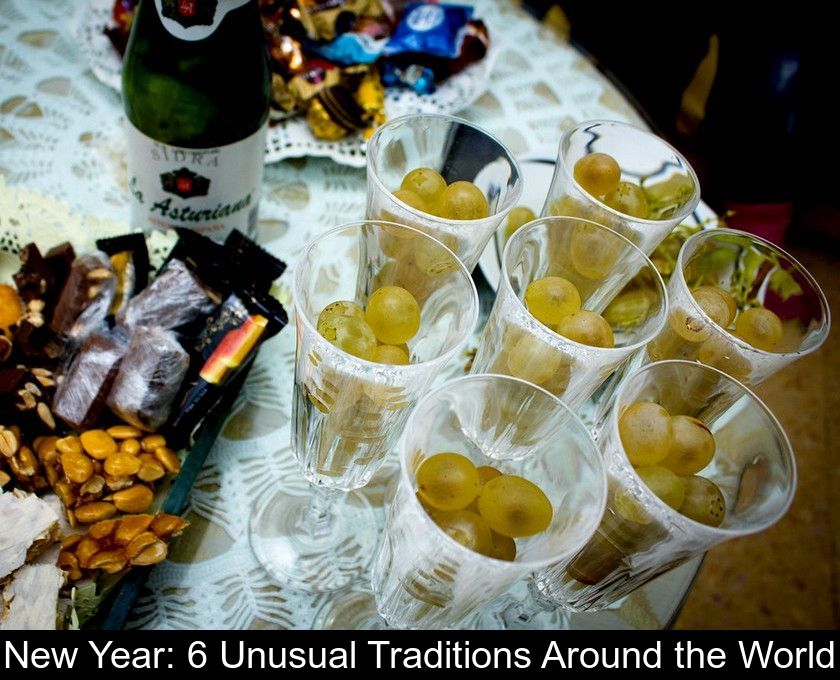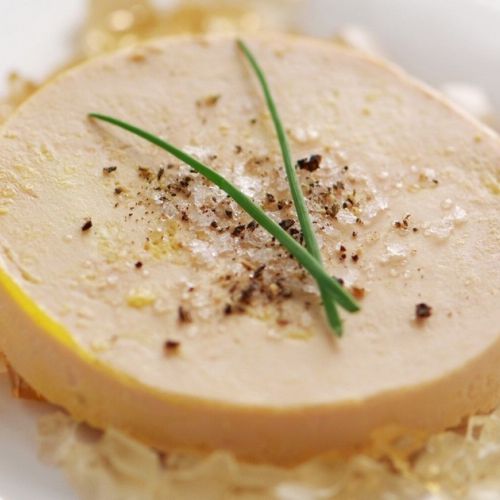New Year: 6 Unusual Traditions Around The World
Every people has its own rituals to celebrate the transition to the new year. In some countries, New Year's customs are particularly astonishing. We are going to introduce you to 6 unusual traditions from around the world.
Germans read the future in lead.
You might not know this, but our German neighbors have a peculiar New Year's tradition. This custom, known as Bleigiessen, involves melting lead and pouring it into a basin of water to read the future.
In Germany, it's even possible to buy kits in supermarkets to partake in this tradition. Fortunately for beginners, the commercially sold Bleigiessen kits all include an explanatory booklet on the meanings and interpretations of the shapes formed!
Spaniards eat 12 grapes.
Even within the European Union, each country has its own customs for celebrating the New Year. In Spain, there is an unusual New Year's tradition that dates back to 1909.
That year, the grape harvest was particularly bountiful. That's why vintners invented "the lucky grapes" to sell off their surplus. The ritual involves eating 12 grapes (one for each stroke of midnight) to bring good luck for the year ahead.
This tradition has endured because Spaniards see it as a token of prosperity. Even today, thousands of people in Madrid gather on the evening of December 31st under the Puerta del Sol clock to wait for the twelve strokes of midnight and eat a grape with each bell toll.
Cubans throw buckets of water.
In Cuba, there's a New Year's tradition that might come as a surprise. On December 31st at midnight, Cubans have the custom of throwing buckets of water out of their doors or windows.
This ritual, also found in Uruguay, aims to drive away the torments and bad memories of the ending year.
4- The Japanese do a thorough cleaning.
Among the unique New Year's traditions around the world, one must also mention a Japanese custom called ôsôji. This essential ritual in Japan is somewhat equivalent to our spring cleaning!
Traditionally, each Japanese family cleaned the altar dedicated to deities and ancestors to honor the arrival of the god of the new year. Over the years, this tradition has evolved into an annual deep cleaning.
As December 31 approaches, the Japanese habitually wash floors and windows and tidy up papers in their homes as well as in businesses and schools! The objective of this thorough cleaning is to purify the places and chase away the evil spirits of the past year. Everything must be clean for January 1st.
The start of the year in Japan is also marked by other rituals. In the first days of January, the Japanese flock to temples or shrines to pray.
5- Brazilians throw offerings into the sea.
If you ever have the chance to celebrate New Year's Eve in Rio de Janeiro, Brazil, you will witness one of the world's most unusual New Year traditions. On the evening of December 31st, Brazilians dressed in white gather on Copacabana Beach to honor Iemanja, the goddess of the sea.
To ensure that the goddess grants them luck and prosperity for the new year, the residents of Rio de Janeiro throw all sorts of offerings into the sea, from small boats or along the beach: rice, candies, flowers, or even jewelry and perfumes!
Some participants do not hesitate to jump seven times into the sea to bring themselves good fortune. Luckily for them, it's summer in Brazil as in the entire Southern Hemisphere…
6- The Danes break dishes.
In Denmark, don't be surprised if you find broken dishes in front of your door on the morning of January 1st. The Danes maintain one of the most unusual New Year's traditions in the world.
Throughout the year, residents set aside their chipped dishes... with the sole purpose of breaking them on the evening of December 31st! They then place this broken crockery in front of their neighbors' or loved ones' doors to bring them luck.
The Danes, who are certainly very inventive, also have the custom of starting the new year by jumping off a chair when the twelve strokes of midnight sound. For the ritual to work, one must make a wish while jumping off the chair.






